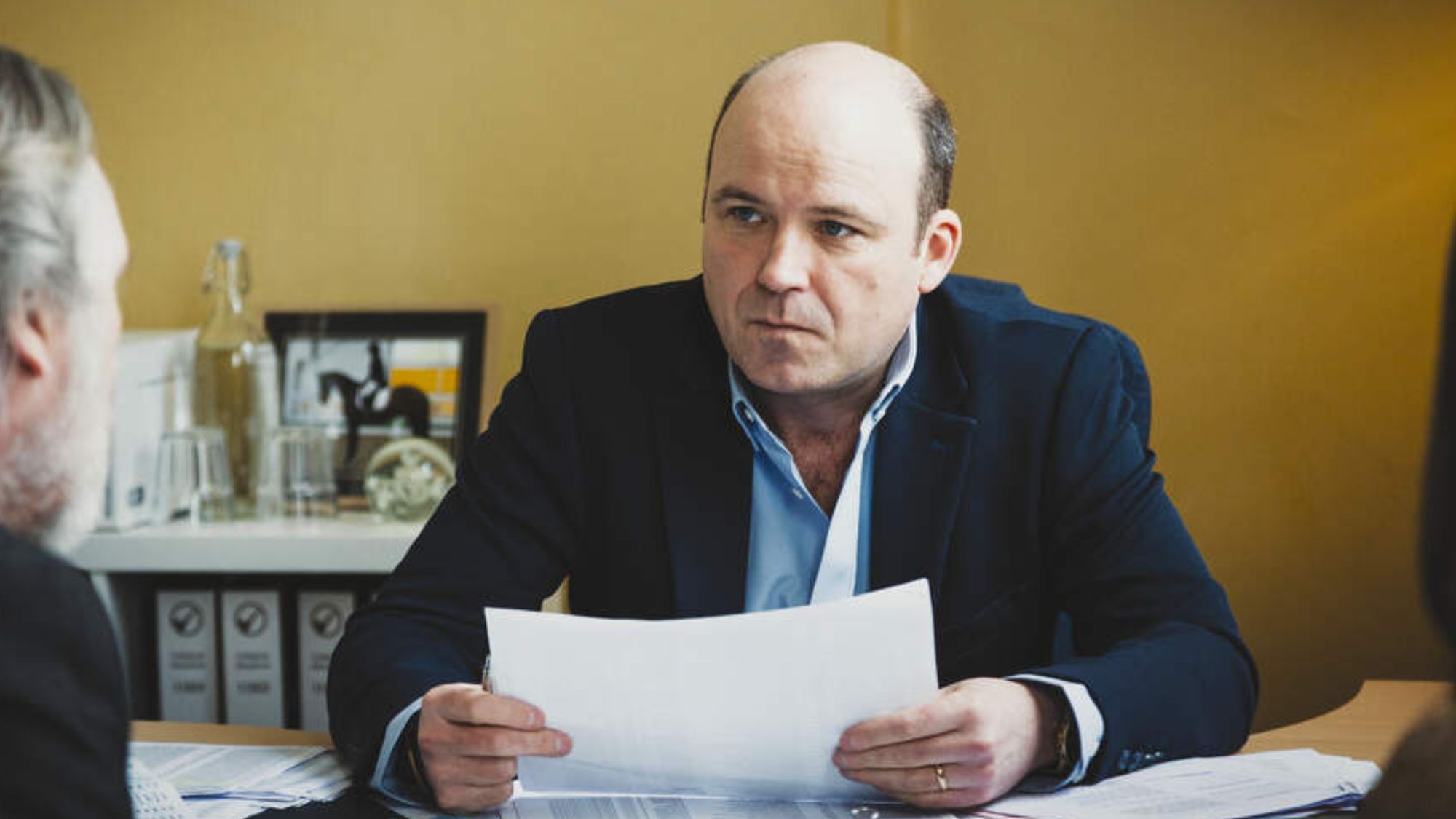Bank of Dave 2: The Loan Ranger – a 'thin' yet 'heart-warming' sequel
The second instalment of a local man setting up a community bank sees Rory Kinnear return

A free daily email with the biggest news stories of the day – and the best features from TheWeek.com
You are now subscribed
Your newsletter sign-up was successful
"You don't often hear the phrases 'feel-good' and 'Financial Conduct Authority' in the same sentence," said John Nugent in Empire. "But 2023's 'Bank of Dave' was as feel-good as they come, telling the 'true-ish' story of David Fishwick (played by Rory Kinnear), a businessman and Burnley bloke who defied the odds and snooty financial regulators to open a charitable community bank for his fellow Lancastrians."
A "proper heart-warming Brit-com in the classical mould", it became a surprise hit on Netflix – and now, "Dave is back".
'Force of feel-goodery'
The action picks up two years on from where the last film left off, with Dave – "now a minor celebrity" – taking on predatory payday-loan firms on behalf of the good people of Burnley.
The Week
Escape your echo chamber. Get the facts behind the news, plus analysis from multiple perspectives.

Sign up for The Week's Free Newsletters
From our morning news briefing to a weekly Good News Newsletter, get the best of The Week delivered directly to your inbox.
From our morning news briefing to a weekly Good News Newsletter, get the best of The Week delivered directly to your inbox.
"As with the first film, Piers Ashworth's script hammers its well-meaning message home with the subtlety of a Lancashire hotpot to the face", but "by God, it remains a powerful force of feel-goodery, powered in large part by the almighty piston of Rory Kinnear's gregarious, charismatic performance".
'Script is dire'
I'm afraid I found this sequel "a bit thin and crap", said Robbie Collin in The Telegraph. It feels "about as tethered to reality as 'Transformers: Rise of the Beasts'"; and the script is dire. Dave's wife tells him: "You're an ordinary bloke standing up against corruption, standing up for ordinary people who don't have lawyers and who don't have a voice!"
The film sticks to the formula that made the original work, said James Mottram in Radio Times.
And while it does "stretch credulity", underlying it is "a very serious topic, smartly presented in a way that never feels too forced".
A free daily email with the biggest news stories of the day – and the best features from TheWeek.com
-
 James Van Der Beek obituary: fresh-faced Dawson’s Creek star
James Van Der Beek obituary: fresh-faced Dawson’s Creek starIn The Spotlight Van Der Beek fronted one of the most successful teen dramas of the 90s – but his Dawson fame proved a double-edged sword
-
 Is Andrew’s arrest the end for the monarchy?
Is Andrew’s arrest the end for the monarchy?Today's Big Question The King has distanced the Royal Family from his disgraced brother but a ‘fit of revolutionary disgust’ could still wipe them out
-
 Quiz of The Week: 14 – 20 February
Quiz of The Week: 14 – 20 FebruaryQuiz Have you been paying attention to The Week’s news?
-
 James Van Der Beek obituary: fresh-faced Dawson’s Creek star
James Van Der Beek obituary: fresh-faced Dawson’s Creek starIn The Spotlight Van Der Beek fronted one of the most successful teen dramas of the 90s – but his Dawson fame proved a double-edged sword
-
 Properties of the week: pretty thatched cottages
Properties of the week: pretty thatched cottagesThe Week Recommends Featuring homes in West Sussex, Dorset and Suffolk
-
 Kia EV4: a ‘terrifically comfy’ electric car
Kia EV4: a ‘terrifically comfy’ electric carThe Week Recommends The family-friendly vehicle has ‘plush seats’ and generous space
-
 Bonfire of the Murdochs: an ‘utterly gripping’ book
Bonfire of the Murdochs: an ‘utterly gripping’ bookThe Week Recommends Gabriel Sherman examines Rupert Murdoch’s ‘war of succession’ over his media empire
-
 Gwen John: Strange Beauties – a ‘superb’ retrospective
Gwen John: Strange Beauties – a ‘superb’ retrospectiveThe Week Recommends ‘Daunting’ show at the National Museum Cardiff plunges viewers into the Welsh artist’s ‘spiritual, austere existence’
-
 Bad Bunny’s Super Bowl: A win for unity
Bad Bunny’s Super Bowl: A win for unityFeature The global superstar's halftime show was a celebration for everyone to enjoy
-
 Book reviews: ‘Bonfire of the Murdochs’ and ‘The Typewriter and the Guillotine’
Book reviews: ‘Bonfire of the Murdochs’ and ‘The Typewriter and the Guillotine’Feature New insights into the Murdoch family’s turmoil and a renowned journalist’s time in pre-World War II Paris
-
 6 exquisite homes with vast acreage
6 exquisite homes with vast acreageFeature Featuring an off-the-grid contemporary home in New Mexico and lakefront farmhouse in Massachusetts